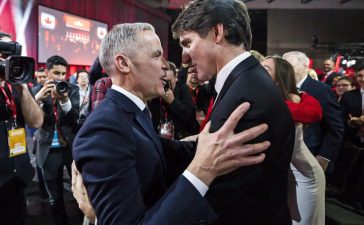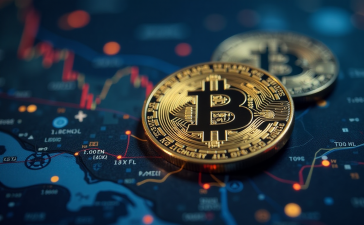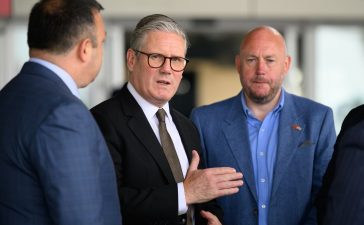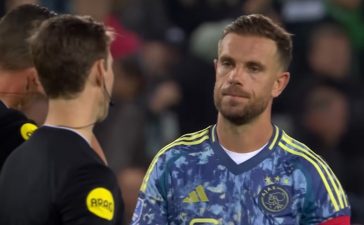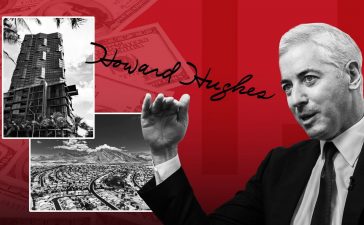A Ukrainian Nobel peace laureate has called for the swift creation of a special tribunal to try Vladimir Putin and his associates for the crime of aggression, arguing that it could have “a cooling effect” on atrocities committed by the Kremlin’s invading forces.
Oleksandra Matviichuk, the head of the Centre for Civil Liberties, also said a speedy start to war crimes trials against the Russian president and soldiers could save people’s lives by deterring Russian forces from committing further crimes.
Starting legal proceedings could have “a cooling effect” on the brutality of human rights violations that Russian troops were committing daily in Ukraine, she told the Guardian in an interview.
Some troops, perhaps not all, would realise that Putin’s authoritarian regime had an end date, Matviichuk said, if they knew they would be held to account. The possibility of justice would help them realise “I will not be able to hide under abstract Putin and maybe I will have to be responsible for every thing which I commit by my own hands”, she said.
The Centre for Civil Liberties (CCL) won the Nobel peace prize in 2022, along with the Russian human right organisation Memorial and the jailed Belarusian activist Ales Bialiatski.
Founded in 2007, the CCL has campaigned for democratic change in Ukraine. Since 2014, it has documented more than 26,0000 war crimes in Russian-annexed Crimea and two self-proclaimed republics in Donetsk and Luhansk run by Russian proxies.
Based in Kyiv, Matviichuk travels frequently to rally support in western capitals for closing “the accountability gap”. She advocates for the Ukrainian government proposal of a special tribunal to try Putin and other political and military leaders for the crime of aggression, which cannot be prosecuted at the international criminal court in The Hague.
Ukraine’s allies are discussing the idea, but officials say talks remain at an early stage. Earlier this month, the EU promised that an international centre for the prosecution of the crime of aggression based in The Hague would be operational from July, with the purpose of gathering and storing evidence, but it remains unclear where and when this evidence would be heard.

Matviichuuk also urged western nations to increase their focus on a second dimension of the “accountability gap”: helping Ukraine’s overloaded national prosecutor investigate tens of thousands of war crimes and atrocities. She would like to see international judges and prosecutors working with their counterparts in Ukraine, who are grappling with a vast and growing caseload. On 17 February, Ukraine’s prosecutor general, Andriy Kostin, said his office was investigating 67,000 war crimes cases.
“It’s very obvious that even the best prosecutor’s office in the world couldn’t effectively investigate up to [so many] criminal proceedings effectively, especially during war. So the question is, who will investigate it?” Matviichuk said.
She would like both elements – the special tribunal and support for Ukraine’s domestic prosecutor – in place as soon as possible, rather than at a distant moment once the fighting has stopped. The world still has the “prejudice” of viewing international justice through the prism of Nuremberg trials, she said, when war criminals were tried only after the Nazi regime had collapsed.
“It’s important to establish [these mechanisms] now because when I spoke with victims, they told me that their perpetrators always felt very confident that they will avoid responsibility. They enjoyed impunity,” she said.
She cited a survey by the Kyiv International Institute for Sociology last summer, which showed that two-thirds of respondents (65.8%) said their biggest disappointment at the end of the war would be Russian impunity for war crimes.
after newsletter promotion
Putin and his circle should also be held responsible for war crimes and genocide, as well as the crime of aggression, Matviichuk said. These were not sporadic acts by particular brigades, but a policy choice made at the highest levels in an attempt to break the will of Ukraine to resist, she said.
“This policy is very cynical and pragmatic,” she said, noting it was especially visible after Russia’s defeat in Kharkiv and before the liberation of Kherson, which Russia anticipated by destroying civilian infrastructure. “Russia tried to break people’s resistance and occupy Ukraine by the tool which I call the immense pain of civilian population.”
Matviichuk was speaking from Belgium, where she was awarded an honorary doctorate from the University of Louvain earlier this month. Her first trips abroad last year after the invasion were discombobulating. When sitting “in a safe place in some European country, with meetings, with coffee, with people who speak calmly, smiling”, she began to feel she was going mad, that maybe the war was a terrible nightmare. Now these feelings have gone. “I don’t need any more this survival mechanism,” she said.
Even after 20 years working in human rights, including eight documenting atrocities in Russian-controlled territories, she was not mentally prepared for the large-scale invasion of 24 February 2022. “We will never be the same as we were before the large-scale invasion, because violence changed people and pain has a very unique characteristic … Sometimes you can feel that you’re burned out with this pain.”
Her organisation has been working with Russian human rights defenders for years. Cooperation stepped up after 2014 when the kleptocratic authoritarian government of Viktor Yanukovych collapsed, triggering Putin’s annexation of Crimea and the occupation of Donetsk and Luhansk by Russian-backed proxies. “Putin is afraid not of Nato, he’s afraid of the idea of freedom, which came closer to his own borders in 2014,” she said.
Russian human rights activists are facing unprecedented persecution: “They are blamed by their own society. They are labelled as foreign agents, they are jailed, they are beaten, some of them have to leave the country. Some of them are waiting for criminal prosecutions and decided that they will remain to the end.
“When I asked them, how I can help them in this situation, they always respond: If you want to help us, please be successful. Because democratic success of Ukraine will provide a huge impact to the chance of any democratic future of Russia itself.”







